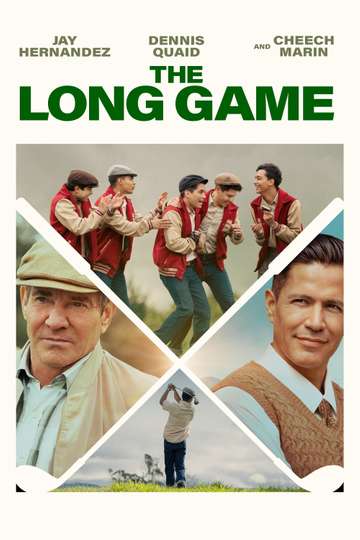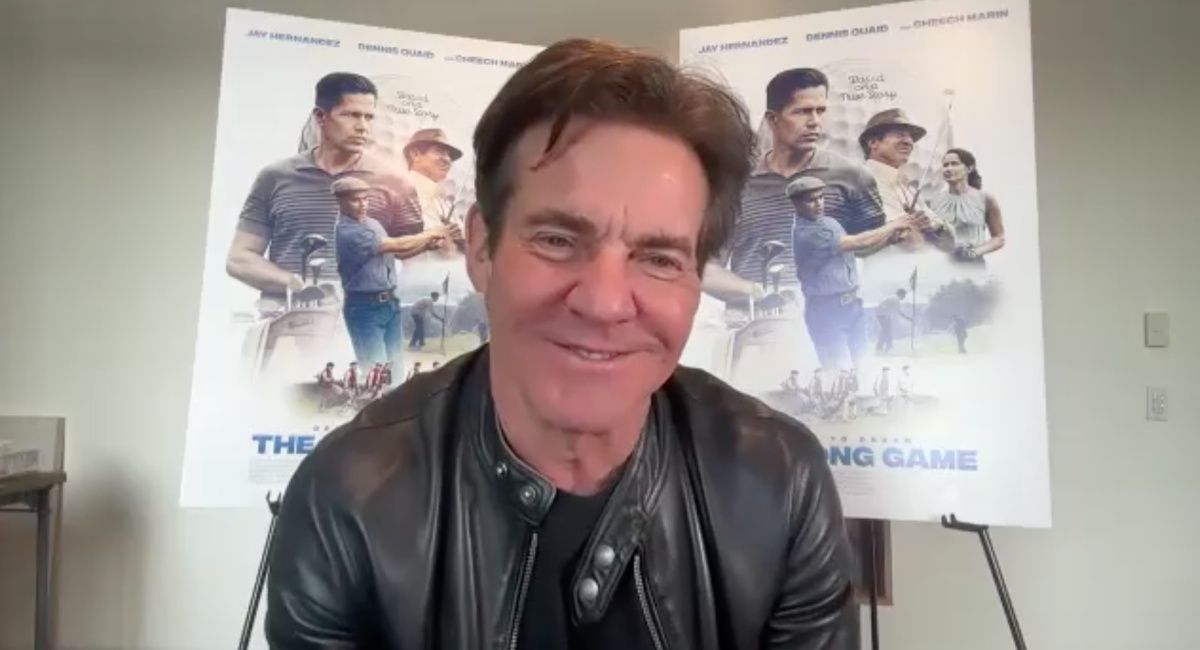
Dennis Quaid talks ‘The Long Game’.
Opening in theaters on April 12th is the new sports drama ‘The Long Game,’ which was based on a true story and was directed by Julio Quintana (‘Blue Miracle’). The movie stars Jay Hernandez (‘Suicide Squad’), Dennis Quaid (‘The Rookie,’ ‘Any Given Sunday’), and Cheech Marin (‘Champions’).
Moviefone recently had the pleasure of speaking with Dennis Quaid about his work on ‘The Long Game,’ the true story it is based on, his character, reuniting with Jay Hernandez on screen, and why he likes working with director Julio Quintana.
Related Article: Colin Ford Talks ‘The Hill’ and Rickey Hill’s Real Life Story
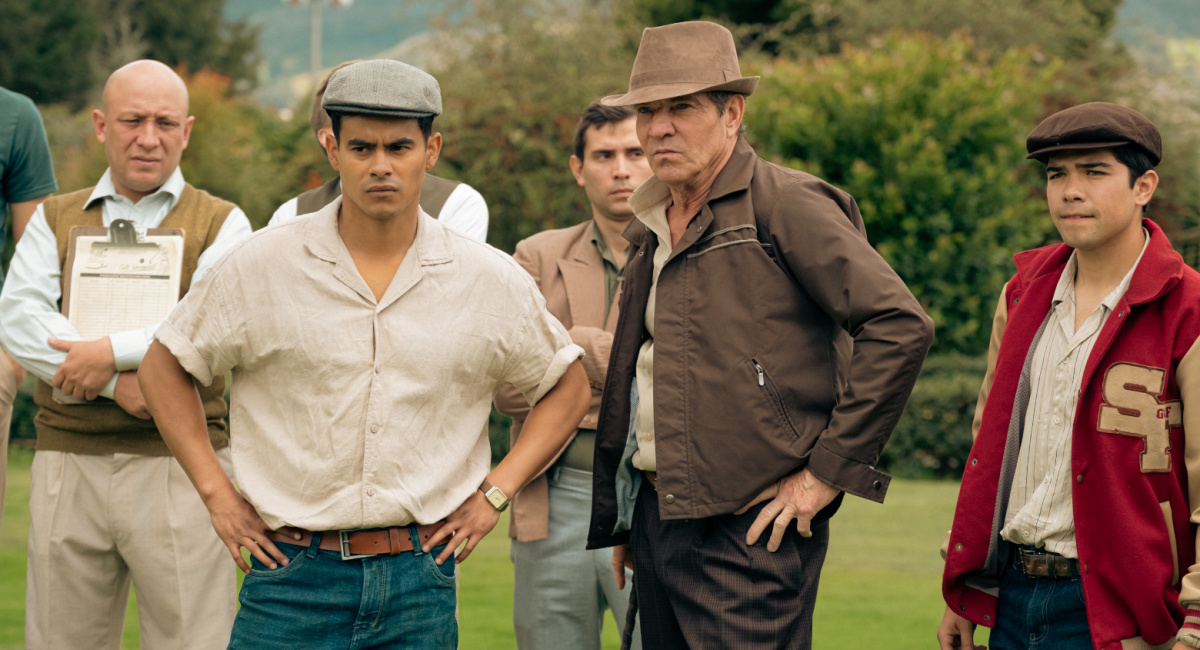
(Right) Dennis Quaid in ‘The Long Game’. Photo: Courtesy of Anita Gallón.
Moviefone: To begin with, what was your first reaction to the screenplay and learning of the true story that the movie is based on?
Dennis Quaid: I grew up in Texas and I had never heard of this story before. That’s how I choose my projects that I do is by reading the script. When I read a script for the first time, I’m a first-time audience member. So, it’s the story that really gets me. I know by page 30 if it’s going to be good or not. This one really grabbed me, and I thought it was very relevant, especially today, in our times that we’re going through, to tell this story. These five Mexican American kids who are living down on the border, they’re caddies at a country club where they can’t play. They really don’t feel like they fit in in America. They go across the border to where their parents came from, and they don’t feel at home in Mexico as far as being accepted. So, they’re walking that line between two worlds. They love golf and they couldn’t play at this country club. They built their own golf course in the desert, this rudimentary course, and they started a golf team in their high school. Then, they won the Texas State Championship the very first year at the country club where they couldn’t play. So that changed their lives, that story. In fact, one of the real guys came to our set. He’s in his eighties now, and he served in Vietnam. He’s a proud American and a proud veteran. This story, I’m glad it’s coming to the screen, but that’s a brick in the wall of our story of America that we’re building and it’s an ongoing thing.
MF: Can you talk about Frank’s reluctance to accept the assistant coach position and how he ends up really caring for these boys?
DQ: Well, I think my character, he represents those guys who went off and fought in World War II, and really sacrificed. They came back a little lost and they settled in and hardly talked about the war. They just went along to get along. He represents a status quo in a sense. Even though he is the pro of the country club, these people, the members, they’re his boss. But there’s something in him with these boys that they’re so genuine about what they want to do, and sees them work so hard at it, and it touches something in him about what’s right. So, he helps them, and he helps them by teaching them golf. He’s the white face that gets them into these tournaments. The trouble with everything is if you weren’t a white guy back in the ’50s, it was a tougher life. But it’s a beautiful story and it’s about where we were back then. It’s about how far we’ve come and it’s about how important where we come from is and how we should hold on to that, because it’s all part of the story of America.
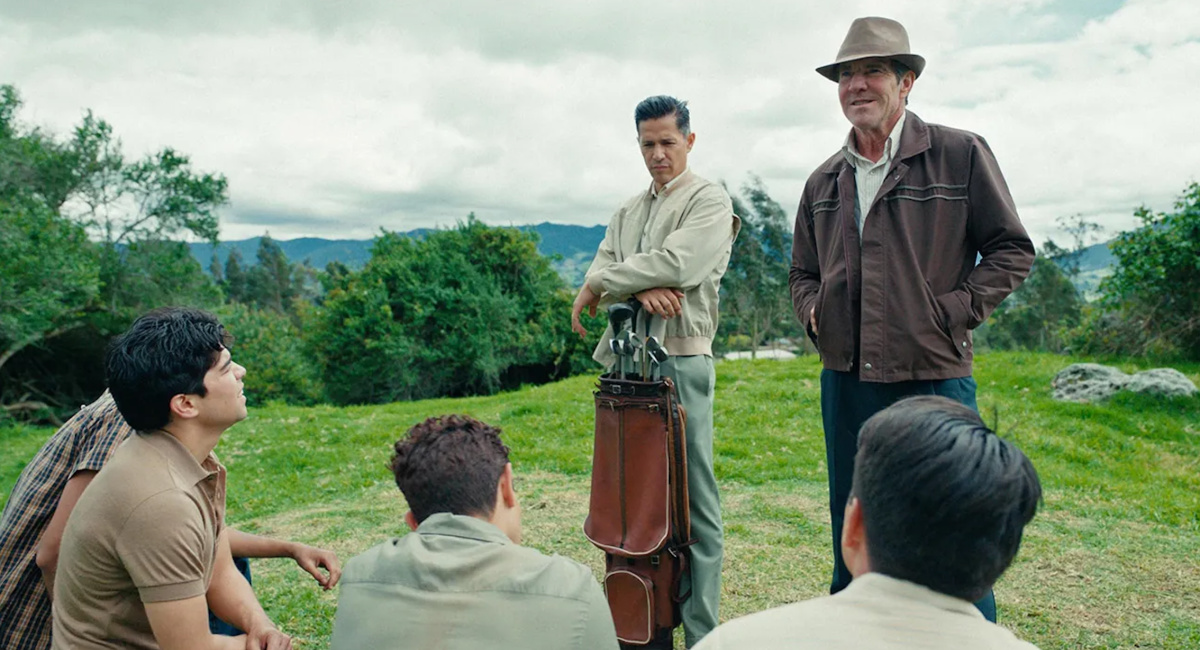
(L to R) Jay Hernandez and Dennis Quaid in ‘The Long Game’. Photo: Courtesy of Anita Gallón.
MF: Can you talk about Frank’s friendship with JB, the respect he has for him and what he’s trying to achieve?
DQ: The story was that Frank was a captain in the army in World War II, and JB was under him. He was one of his soldiers that went into battle. JB saved Frank’s life. So, after the war, he is beholden to him. He wouldn’t be walking around if not for that. JB had a dream of belonging to this country club, and Frank tries to help him get in, but (he can’t) because of the color of his skin. It’s like we were equal over there fighting for America, but you come back and it’s not so equal. That bothers Frank. He is willing to help him out, but there’s also, so much to do.
MF: Can you talk about working with Jay Hernandez?
DQ: He’s good in this movie. He’s such a good actor. It’s kind of full circle because a very similar movie, ‘The Rookie’ that I did 20 years ago, I played a baseball player, and it was an underdog type of story. My character was a coach of a high school team, and Jay was one of my student athletes in that, but now he’s the coach. So, it’s kind of full circle. He’s a great actor. The confidence that he has, and we all get deeper over the years, don’t we? We all have different starting points, but he was deep already back then, but he’s really matured into a good actor.
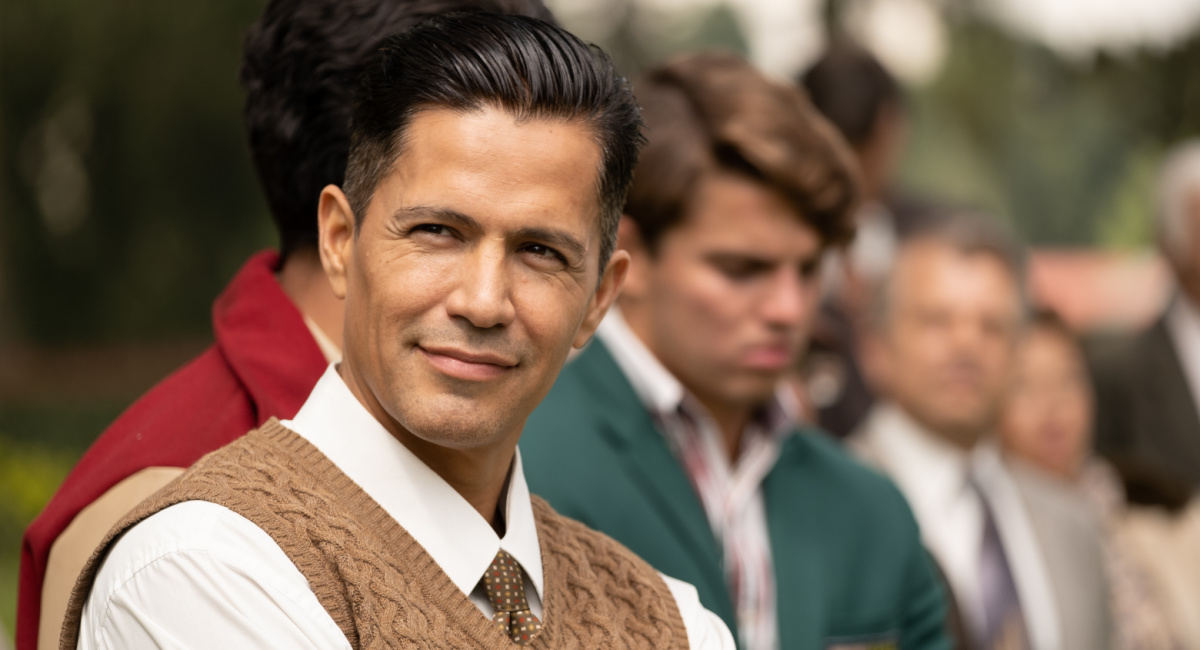
Jay Hernandez in ‘The Long Game’. Photo: Courtesy of Anita Gallón.
MF: Finally, what was it like reuniting with your ‘Blue Miracle’ director, Julio Quintana on ‘The Long Game’?
DQ: We did ‘Blue Miracle’ together, and if it wouldn’t have been for that, this wouldn’t have come about. He’s such a good writer and he’s a great director. I think we’ve caught him right when he’s about to blow up. Because he has a lot of stories to tell that are a little offbeat of what you might think of in independent film. He has a blending of family, authenticity and of American stories from a very different point of view. He’s a great director.
“Dare to dream”
In a segregated Texas, five Mexican-American teenage caddies were prohibited from playing at the country club where they worked. Against all odds, they formed their… Read the Plot
What is the plot of ‘The Long Game’?
The film tells the true story of the San Felipe Mustangs, a group of Mexican American youths located in Del Rio, Texas. In the 1950s, the group set out to play golf at a white country club in town. Despite prejudice, the Mustangs overcame these obstacles to become the 1957 Texas state champions.
Who is in the cast of ‘The Long Game’?
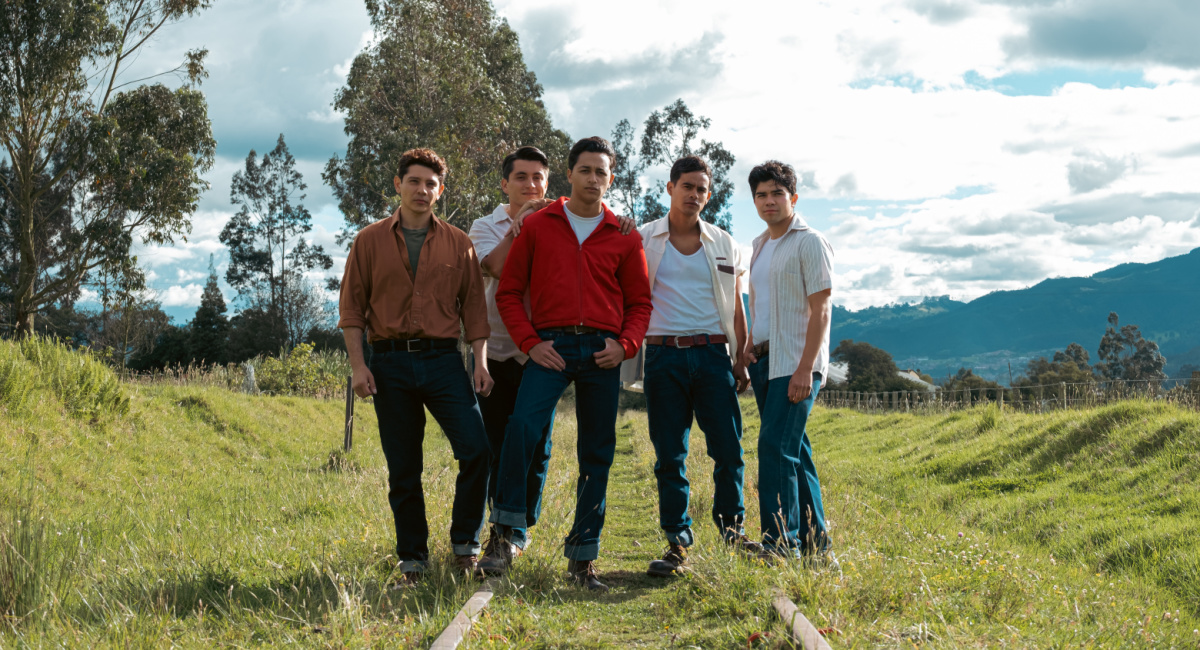
The cast of ‘The Long Game’. Photo: Courtesy of Anita Gallón.

